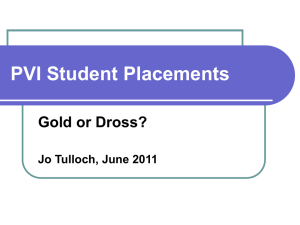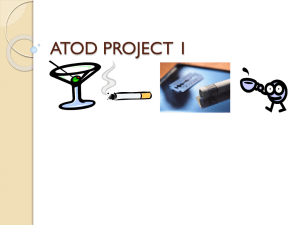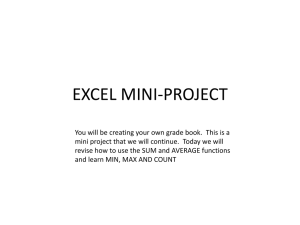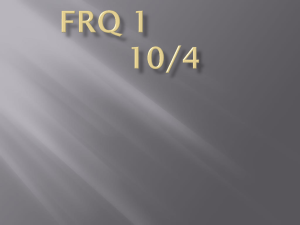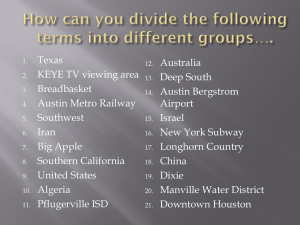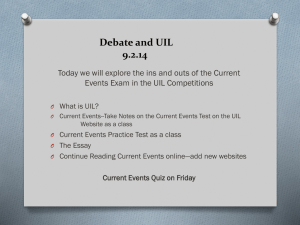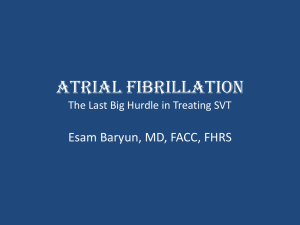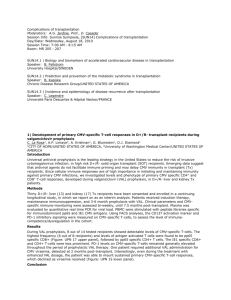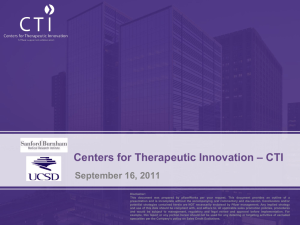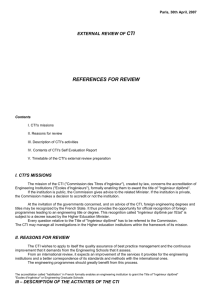房颤导管消融的手术终点
advertisement
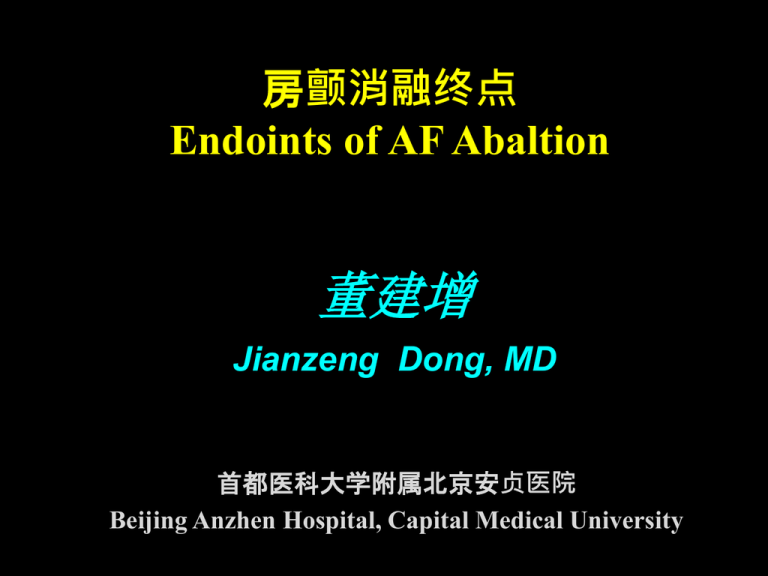
房颤消融终点 Endoints of AF Abaltion 董建增 Jianzeng Dong, MD 首都医科大学附属北京安贞医院 Beijing Anzhen Hospital, Capital Medical University 消融终点取决于…… • 房颤类型 proxysmal persistent permanent • 消融策略 CFAE Step-wised Fixed 2 阵发性房颤? • PVI • • • • • • • CTI LA roof line MI SVC isolation Indcue and the protocol Induced tachcardia Indecement negatively 3 持续性房颤? • By different approach applied • Linear abaltion • SVC isolation • Termination by ablation or CV • Induce • Induced tachycardia 4 • Ablation strategies which target the PVs and/or PV antrum are the cornerstone for most AF ablation procedures. • If the PVs are targeted, complete electrical isolation should be the goal. • Careful identification of the PV ostia is mandatory to avoid ablation within the PVs. • If a focal trigger is identified outside a PV at the time of an AF ablation procedure, it should be targeted, if possible. • If additional linear lesions are applied, line completeness should be demonstrated by mapping or pacing maneuvers. • Ablation of the cavotricuspid isthmus is recommended only in patients with a history of typical atrial flutter or inducible cavotricuspid isthmus dependent atrial flutter. • If patients with longstanding persistent AF are approached, ostial PV isolation alone may not be sufficient. Calkins H, Europace ; 2007: 9, 335–379 5 阵发性房颤…… 6 阵发性房颤 89 pts 1/1000 ISO+ Burst 9 Pts Afib 4 pts AT 2 pts SVC 2 pts RA 1 pts NAC 1 pts AFL 3 pts CTI 2 pts MI 1 pt 持续性房颤消融终点…… • 是否需要肺静脉外消融? • 肺静脉外消融:CFAE, 线性, 局灶,或全部? • CFAE 消融在 PVI + 线性消融之后? • 还是CFAE消融在 PVI + 线性阻滞之后? • 术中房速需要逐个标测么? • 消融终止房颤或规则? • 窦律恢复后(abl. or CV)是否需要诱发及EP检查? 13 Results of Long-lasting AF Abl “most cited JCE paper” Methods PVI + SVCI + CS + Defrag + CTI,ROOF,MI(60pts.) Results Afib. Termi 87%(52/60) Afib.-Sinus 11.7%(7/60) Foci : 38 CAF : 95% Through Flut. 75%(45/60) Macro (ROOF, CTI,MI): 49 MICHEL HAISSAGUERRE, et al. J CE. 2005;16: 1125-1137 AT During CAF ablation • CAF 86 • Turned to SNR via 179 ATs in 80% (69/86) pts. • Mechanisms of AT -- Macroreentry:81%(145/179) perimitral 65, CTI 48, roof 32 -- Localized reentry:12%(21/179) -- Focal:7%(13/179) Ning M, et al. CMJ 2010 (accepted) 15 Mechanisms of Post Abalation AT Basic Data N ATs Average Ats Type of AF PAF Persistent initial approach Mechanism of AT reentrant macro localized focal Jais Chae 128 246 1.92 78 155 1.99 20% 80% segmental+ 73% 27% Circ.+ 83% 44% 39% 14% 88% 75% 13% 12% Jais P, et al. JCE 2009; 20: 480-91 Chae S, et al. JACC 2007;50:1781–7 Mechanism of Reentrant Circuits MI+CTI+ROOF = 78% (91/116) Chae S, et al. JACC 2007;50:1781–7 Possible Reentrant Circles After PVI Cycle length: 240ms Septal PPI: 240ms Lateral PPI: 275ms Pseudo localized reentry 20 P QRS A V LA Multiple ATs after 1st ABL 固定消融策略--- 2“0”3L 44 CASE CAF 58M Abl:CPVA, roof-line, MAI, CTI, Cs DC-CV RSPV RIPV LSPV LIPV 顶部线阻滞 二尖瓣环峡部阻滞(1) CS近端起搏:S-ABLd 130ms 二尖瓣环峡部阻滞(2) CS远端起搏:S-ABLd 145ms 二尖瓣环峡部阻滞(3) 大头远端起搏:S-CSd 150ms CSp>>CSd 三尖瓣环峡部阻滞 CS近端起搏:S-LRA 144ms 诱发阴性 Burst with the shortest 1:1 capture 2“0”3L的优点 2“0”3L的优点 • 策略相对固定 • 可重复性强 • 省时 • 有效 • 再次消融相对简单 56 CAF诱发的必要性? 57 Trigers Outside PVs 60M CAF, Undergone 2 cather ablation, 1 open heart MAZE RAA Cutted LA Scar 4 PVs Isolated V2 I aVF PV12 PV23 PV34 PV45 PV56 PV67 PV78 PV90 CS34 CS23 CS12 ABL34 ABL12 RSPV RIPV LSPV LIPV Two ATs Induced I V2 aVF CS12 CS23 CS34 ABL12 ABL34 STM S1S1=100ms SVC AT(F)(CL=220ms) S1S1=180ms AVNRT(CL=340ms) I aVF V2 CS12 CS23 CS34 ABL12 ABL34 STM AVN Abl. V2 I aVF PV12 PV23 PV34 PV45 PV56 PV67 PV78 PV90 CS34 CS23 CS12 ABL12 ABL34 STM SVC Isolation BURST (-) V2 I aVF PV12 PV23 PV34 PV45 PV56 PV67 PV78 PV90 CS34 CS23 CS12 ABL12 ABL34 STM A-Stim. SVC-Stim. 持续性房颤消融终点…… • 是否需要肺静脉外消融? (Y) • 肺静脉外消融:CFAE, 线性, 局灶,或全部? (N) • CFAE 消融在 PVI + 线性消融之后?(N) • CFAE消融在 PVI + 线性阻滞之后?(Not necessary) • 术中房速需要逐个标测么?(N) • 消融终止房颤或规则?(Not necessary) • 窦律恢复后(abl. or CV)是否需要诱发?(Y) 65 谢谢 66

